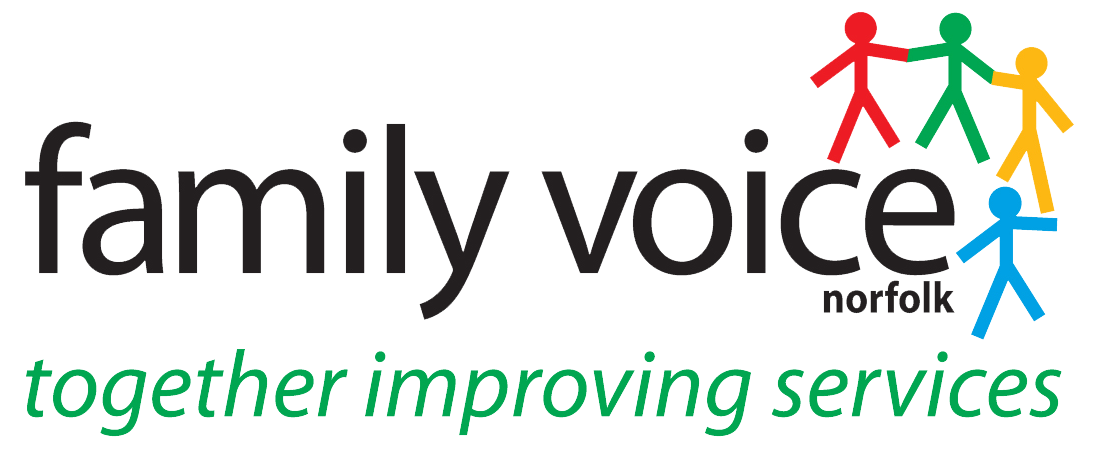We are working on…
Here we hope to give a little more information about some of the subjects and meetings we are working on at the moment. If you have comments, queries or concerns, do please get in touch.
SEND communications and co-production
This is an area that is key to successful improvement of SEND services in Norfolk. We have attended workshops and project meetings around these topics and have identified and presented five main themes that are important:
- Communication is a two-way process. It is not something that is done to parents but should be something in which they participate. If parent carers have swift and easy access to ask questions and give views, it will also create a useful feedback loop so that confusing communications are rapidly identified and changed. Openness to questioning and even challenge also helps hugely to reduce parental suspicion and lack of trust. Listen to us at every stage and everything will become more collaborative, fruitful and quicker to adapt. If COVID-19 has taught us one thing, it’s that almost anything is possible if we all work together.
- Communication internally, within NCC and health services is just as important as external communication to parent carers. Time and again parents experience different services giving them different information, sometimes conflicting. Professionals should be more skilled in understanding the bigger picture within which they work, so that they can give accurate information and advice or at least direct to the correct place if they cannot. This is particularly true between different sectors, such as between social services and education, or between children’s and adult services. Lack of communication in this way reads to parent carers as lack of caring.
- It is vital that everyone is using the same language. Terms such as SEN Support should be correctly used so that everyone means the same thing. The parent of a child or young person with a learning disability may never have heard that term used. ‘Learning difficulty’, ‘developmental delay’, ‘developmental trauma’, ‘Down’s syndrome’ and any number of other terms may have been used in the expectation that these are easier for parent carers to hear. But we need to be clear in order to access the correct services and support. Agreement about terminology at a basic level throughout NCC and health services is vital. Common training for in-house staff in different departments would help to ensure that language is shared. Alongside this, a clearer policy on the use of language would be very helpful. The web team have rules about sentence length, capitalisation, avoiding long paragraphs etc. Everyone should follow simple in-house guidelines when preparing communications. Many professionals are skilled in their field but not skilled communicators. They should have straightforward, rapid access to a team who can simplify what they are saying and give a consistent flavour to all communications. Too often parent carer groups commenting on material end up proofreading rather than being involved in true co-production of content. This should never be necessary.
- Communications always need to be made with a full and clear understanding of their intended recipients. Too often ‘in-house’ terminology and acronyms are used, or technical educational terms that are only relevant to professionals. This is not in opposition to point 3., above. It’s not always easy for a professional to understand how their words sound to someone outside the profession. NCC/Health has access to Family Voice and other parent groups who can say immediately how something will be viewed by some parents. Use them. More careful wording could avoid a great deal of anxiety and distrust.
- Clear channels of communication need to be identified so that parent carers know where reliable information can be accessed or how they will individually receive it. Parent groups should not be expected to inform parent carers about services. None of them have 100% membership of relevant groups. There needs to be more consistency about what and how educational settings pass on information. The same is true in health services between different services and to parents. Too often, documents with false information about a child or young person (an assumption made by someone who is expert in a different field) are included in patients’ files.
Progress has been made in many of these areas but more still needs to be done. Family Voice representatives worked with NCC professionals to create a SEND Communications Guide. You can find it on the SEND Local Offer website here.
Annual SEND Survey
In February 2022, Norfolk County Council created a SEND Survey, with different versions for families, professionals, and children and young people with SEND. Family Voice Norfolk was part of the process of writing the survey, making sure that it was easy for busy parents to respond about subjects that are important to them.
Over 1,000 replies were received and the information gained will be used to help focus work on the revision of the SEND Local Area Strategy and other pieces of work. The data is still being analysed, but as it becomes available, we will help to publicise what has been learned and what actions will be taken as a result.
The survey will be repeated annually, with the aim of identifying where the experiences of families have improved and where work is needed urgently for improvements.
SENDfest 2023
An exciting idea to emerge from work on the Written Statement of Action and the SEND Local Area Strategy has been planning for a festival in the summer of 2023 to celebrate and inform about all things SEND. The event is planned to take place at Easton College and we will be publicising it fully nearer the time.
